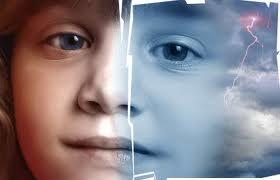The bipolar disorder(BPD) is a difficult disorder for those who suffer, and also for people who live with them.
 Sometimes we have these people very close to us and we can feel helpless if we do not know how to act, how to live with a person with bipolar disorder, or how to treat them. But what if it is our son who has bipolar disorder? How can we help him to be better? If they are better, we as parents will be too. For this reason, from this article, we want to guide you on how to help my bipolar child.
Sometimes we have these people very close to us and we can feel helpless if we do not know how to act, how to live with a person with bipolar disorder, or how to treat them. But what if it is our son who has bipolar disorder? How can we help him to be better? If they are better, we as parents will be too. For this reason, from this article, we want to guide you on how to help my bipolar child.
Steps to follow:
- Learn about the disorder, the more you know the more you can help. Also inform your child.
- Keep a schedule for the medication, paying attention to it being taken. Also keep a schedule at home, with routines that help your child feel secure, and that their sleep hours are adequate, also within routines.
- Accompany your child to the doctor and therapist. Make him aware that it is for his good and that they will help him improve.
- Control your diet, with a balanced diet, avoiding caffeine or sugar (they can cause a manic episode). Physical exercise is also a good option
- Take care of yourself too. It can cause you stress, dejection, that your personal relationships are damaged because of what it takes to take care of a person with BPD. You should feel good first and will be better able to help your child.
- Please be patient. Take a deep breath and use relaxation techniques at critical times. Don’t feel guilty when your child is in depressive or mixed episodes. You are not to blame for anything, you are the strength and support you need.
- Encourage your child to talk to you, listen carefully and advise him on what he asks or what you think is appropriate. Always with a soft tone of voice and avoiding arguments. Try to be as understanding as possible of the sudden mood swings your child experiences. Remember that it is not an external factor that makes you change; it all has to do with your bipolar disorder.
- Help your child have fun. It will be a way to spend time together and avoid confrontations that can cause discomfort and problems.
- If you feel downcast or without resources, seek help from family members or health professionals, but do not lose control. If you consider it necessary, go to a support group for relatives or friends of people with TBP.
- Be an emotional support and a fundamental pillar for your child without becoming excessively responsible for his life, do not help him to obtain the role of victim. Avoid doing it all to him, he also has to learn to be autonomous.
- Ask him what he needs or how you can help him. Since people with bipolar disorder, depending on their condition, they will need some things or others.
This article is merely informative, we do not have the power to prescribe any medical treatment or make any type of diagnosis. We invite you to see a doctor in the case of presenting any type of condition or discomfort.




